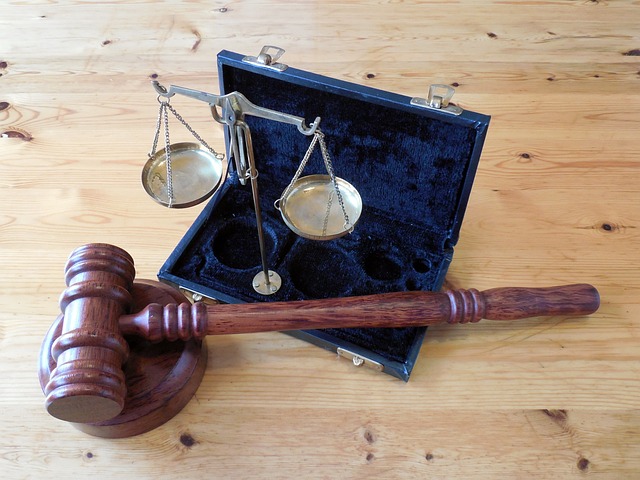Regulatory Fraud Laws protect businesses and investors from deceptive practices, emphasizing fraud, materiality, and intent. Co-founder conflicts are common during startup stages, caused by differing visions, resource allocation, or contributions. Effective conflict resolution strategies, including open communication, regular meetings, mediation, and legal consultation, prevent fraud and preserve business integrity. "Conflict Resolution Strategies for Co-Founders" guides startups to address internal disputes without costly litigation using methods like external mediation and arbitration.
Regulatory Fraud Laws are an essential tool in maintaining integrity within businesses, especially startups where dynamic co-founder relationships can lead to complex situations. Understanding these laws, their key definitions, and scope is vital for entrepreneurs. This article explores common causes of conflict among co-founders, offering internal dispute resolution strategies to mitigate legal complications. We also delve into external mediation and arbitration as alternative, cost-effective conflict resolution methods, providing valuable insights on effective conflict management for co-founders.
- Understanding Regulatory Fraud Laws: Key Definitions & Scope
- Common Causes of Conflict Among Co-Founders
- Legal Strategies for Resolving Founder Disputes Internally
- External Mediation & Arbitration: Alternative Dispute Resolution Options
Understanding Regulatory Fraud Laws: Key Definitions & Scope

Regulatory Fraud Laws are designed to protect businesses and investors from deceptive practices within companies. At their core, these laws define and penalize actions that misrepresent or conceal material information relevant to a corporation’s financial health or activities. Key terms like fraud, materiality, and intent carry significant weight under these regulations. Understanding these definitions is crucial for resolving conflicts between co-founders, especially when navigating the complexities of corporate and individual clients’ interests.
The scope of Regulatory Fraud Laws extends to a wide range of behaviors, including financial statement manipulation, insider trading, and false disclosures. When co-founders disagree on ethical or legal boundaries within their respective businesses, employing conflict resolution strategies becomes essential. An unprecedented track record of successful fraud prevention can be a testament to the effectiveness of these laws, underscoring the importance of compliance for all parties involved.
Common Causes of Conflict Among Co-Founders

Conflict among co-founders is a common challenge, often stemming from differing visions, resource allocation disputes, or uneven contributions to a respective business. These tensions can escalate quickly, especially during the initial stages when the startup’s future is uncertain and expectations are high. A variety of factors—including personal personalities, misaligned goals, and a lack of clear governance structures—can contribute to these conflicts, creating a complex web that may even lead to regulatory fraud if left unaddressed.
Effective conflict resolution strategies for co-founders are essential to navigate these challenges. Open communication channels, regular meetings, and the establishment of transparent decision-making processes can help mitigate disagreements. Additionally, seeking professional mediation or consulting with a general criminal defense attorney can offer valuable perspectives and ensure that disputes are handled fairly, maintaining the integrity of the respective business and its unprecedented track record.
Legal Strategies for Resolving Founder Disputes Internally

When co-founders of a startup find themselves in dispute, resolving the issue internally can be a more efficient and cost-effective strategy than legal action. This involves employing conflict resolution techniques that are tailored to the unique dynamics of the respective business. By fostering open communication, mediating discussions, and seeking mutually beneficial solutions, founders can avoid the time-consuming and expensive process of litigation.
Conflict resolution strategies for co-founders should focus on understanding each party’s perspective, identifying the root cause of the dispute, and finding creative ways to reconcile differences. This may involve negotiating new roles, redefining ownership stakes, or establishing clear operational guidelines. Engaging a neutral third-party mediator can also facilitate these discussions, ensuring that both sides feel heard and respected while working towards a resolution that promotes the continued success of the corporate and individual clients’ business.
External Mediation & Arbitration: Alternative Dispute Resolution Options

In today’s dynamic business landscape, conflict resolution strategies for co-founders are essential to maintaining a harmonious working relationship. External mediation and arbitration stand out as alternative dispute resolution options, offering a more flexible approach compared to traditional litigation. These methods provide a private, controlled environment where co-founders can negotiate and reach mutually agreeable solutions without the formalities of court proceedings.
Mediation and arbitration not only foster achieving extraordinary results in a cost-effective manner but also preserve the integrity of respective business relationships. With an unprecedented track record of success, these conflict resolution strategies empower co-founders to navigate disagreements constructively, ensuring long-term viability and prosperity for their ventures.
Regulatory Fraud Laws play a pivotal role in maintaining integrity within business operations, particularly during co-founder disputes. By understanding key definitions and the scope of these laws, founders can proactively avoid fraud and navigate conflicts using effective internal resolution strategies. When internal efforts fail, external mediation or arbitration offer alternative dispute resolution options, ensuring that businesses uphold legal standards while fostering harmonious relationships among co-founders. Adopting appropriate conflict resolution strategies is essential to prevent regulatory issues, safeguard business credibility, and preserve the success of startup ventures.






